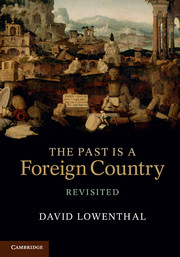Part I - Wanting the past
Published online by Cambridge University Press: 05 November 2015
Summary
The poetry of history lies in the quasi-miraculous fact that once, on this earth, on this familiar spot of ground, walked other men and women, as actual as we are today, thinking their own thoughts, swayed by their own passions, but now all gone, one generation vanishing after another, gone as utterly as we ourselves shall shortly be gone.
George Macaulay Trevelyan, 1949There is only the past. The future hasn’t come into being yet, and the present is a hairline thinner than the thinnest imaginable hair . . . Let us glory in having added more and more to the past.
Anthony Burgess, 1983Someone asks a Greek cartoonist whether the country has a future. Well, he said, ‘we have a past. You can’t have everything.’
Patricia Storace, 1997The miracle of life is cruelly circumscribed by birth and death. Of the immense aeons, the abyss of years before and after our own brief lives, we directly experience nothing. Consciousness that blesses humans with knowledge of a past also curses us with awareness of time’s awesome duration beyond our own evanescence. Why, asked Arthur Schopenhauer, should we lament our future non-existence any more than our absence from pre-natal eras?4 Some indeed do mourn both: viewing home movies filmed a few weeks before his birth, Vladimir Nabokov was appalled by the rich reality of this past he had not shared and where nobody had missed him. A brand-new empty baby carriage had ‘the smug, encroaching air of a coffin . . . as if, in the reverse order of things, his very bones had disintegrated’. Defying the prison of time present, he strove ‘to steal into realms that existed before I was conceived’.
- Type
- Chapter
- Information
- The Past Is a Foreign Country – Revisited , pp. 23 - 30Publisher: Cambridge University PressPrint publication year: 2015
- 1
- Cited by

